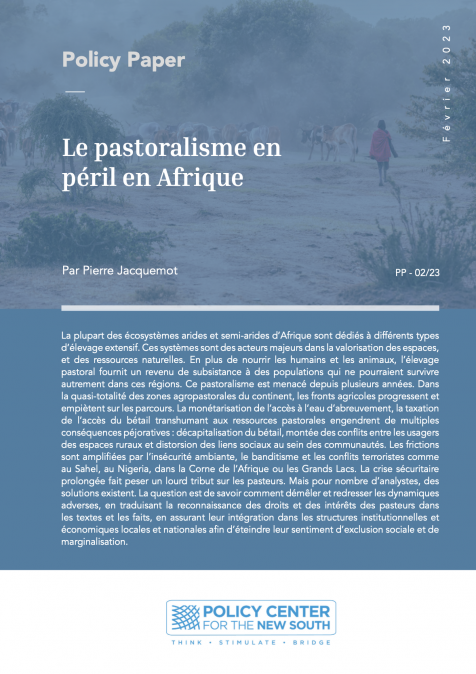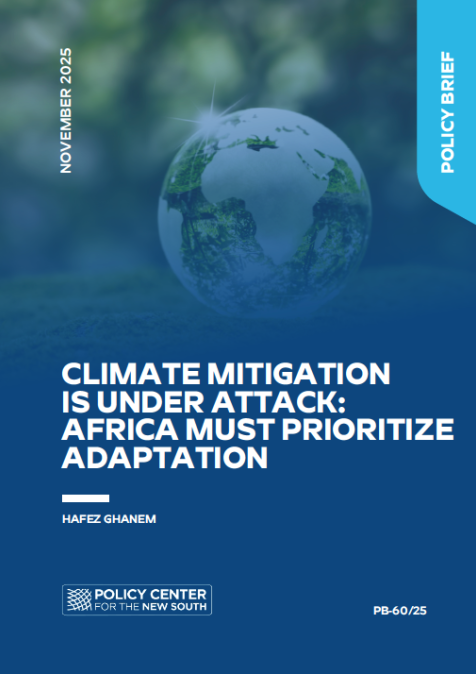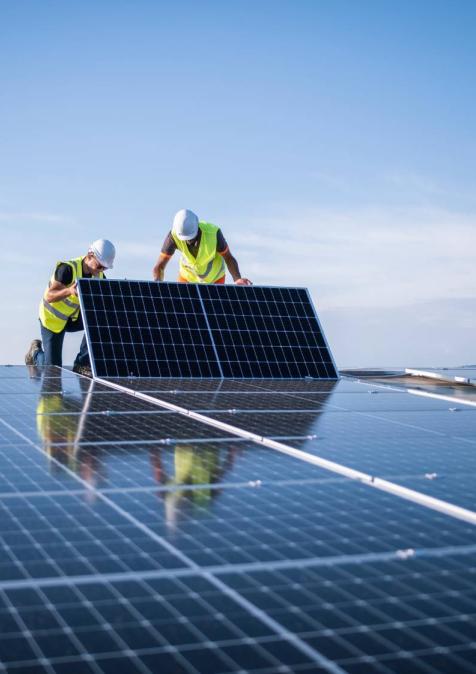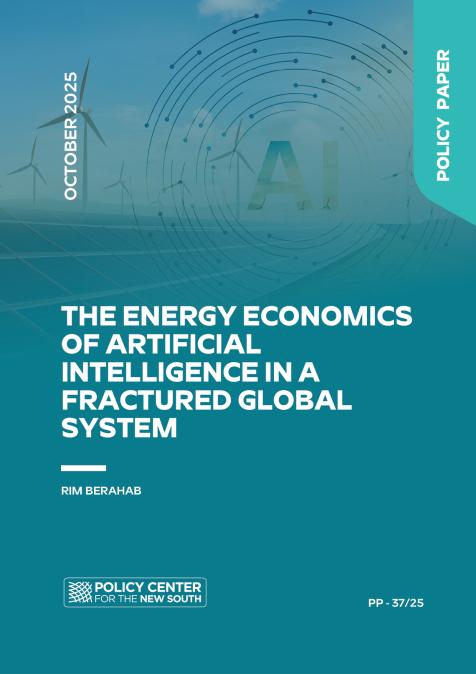Publications /
Policy Paper
La plupart des écosystèmes arides et semi-arides d’Afrique sont dédiés à différents types d’élevage extensif. Ces systèmes sont des acteurs majeurs dans la valorisation des espaces, et des ressources naturelles. En plus de nourrir les humains et les animaux, l’élevage pastoral fournit un revenu de subsistance à des populations qui ne pourraient survivre autrement dans ces régions. Ce pastoralisme est menacé depuis plusieurs années. Dans la quasi-totalité des zones agropastorales du continent, les fronts agricoles progressent et empiètent sur les parcours. La monétarisation de l’accès à l’eau d’abreuvement, la taxation de l’accès du bétail transhumant aux ressources pastorales engendrent de multiples conséquences péjoratives : décapitalisation du bétail, montée des conflits entre les usagers des espaces ruraux et distorsion des liens sociaux au sein des communautés. Les frictions sont amplifiées par l’insécurité ambiante, le banditisme et les conflits terroristes comme au Sahel, au Nigeria, dans la Corne de l’Afrique ou les Grands Lacs. La crise sécuritaire prolongée fait peser un lourd tribut sur les pasteurs. Mais pour nombre d’analystes, des solutions existent. La question est de savoir comment démêler et redresser les dynamiques adverses, en traduisant la reconnaissance des droits et des intérêts des pasteurs dans les textes et les faits, en assurant leur intégration dans les structures institutionnelles et économiques locales et nationales afin d’éteindre leur sentiment d’exclusion sociale et de marginalisation.










